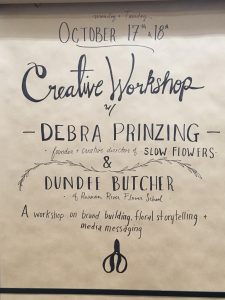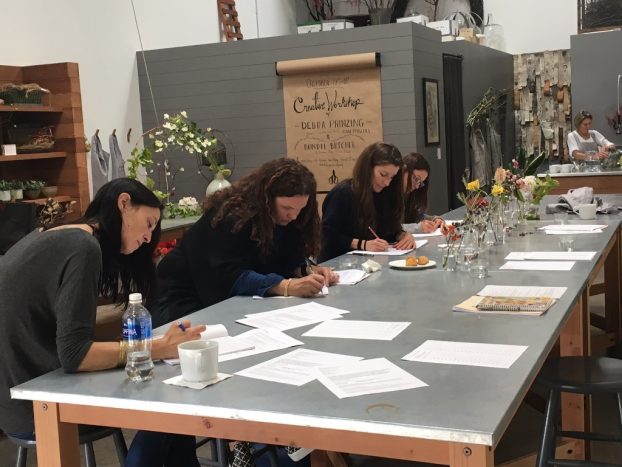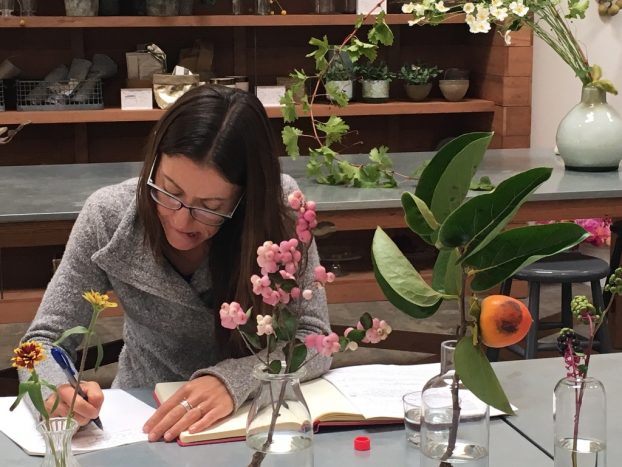Podcast: Play in new window | Download
Subscribe: Apple Podcasts | Podcast Index | | More
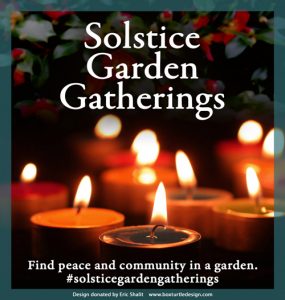
First of all, Happy Winter Solstice! You may be celebrating tonight with a Garden Walk, a concept proposed by Sue Nevler, a Seattle friend of mine who is active in the American Public Garden community.
The idea she has is that we light a candle and take a nighttime walk in a garden with others as a peaceful gathering of community — by extension, I’m suggesting we celebrate Solstice in cutting gardens and on flower farms. If today is the first you’ve heard of her suggestion, follow this link for more details about Solstice Garden Gatherings.
I’m delighted to share a very special Holiday episode — and I hope it feeds your spirit as much as has mine. Last year’s Holiday episode featured musician-songwriter-flower farmer Dennis Westphall of Jello Mold Farm in Mt. Vernon, Washington. In case you missed that spirited program in which Dennis played some of his original songs and sang for us, here’s the link to that episode.
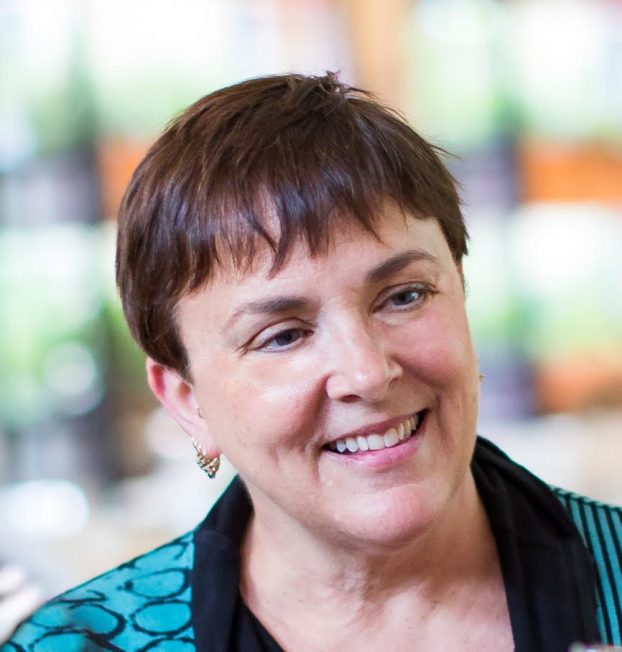
Today’s uber-talented guest foraging expert and amazing vocalist Ellen Zachos.
I worried for a while that Dennis and his music would be a hard act to follow, but then my friend Ellen Zachos agreed to join me, sharing her lovely vocals and the story of her love affair with plants. I’m so pleased she said YES when I asked.
I first learned about Ellen in the pages of Harvard Magazine, which my husband Bruce receives each month as an alumni.
It was probably a dozen years ago when Harvard profiled one of its alums, a New Hampshire native who had moved to New York City after graduation and joined the stage.
She also studied horticulture at the New York Botanical Garden.
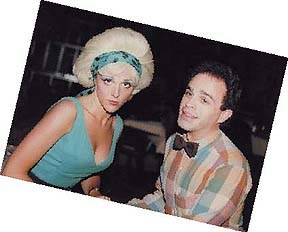
Ellen Zachos as Audrey in Little Shop of Horrors at the Alhambra Dinner Theatre, Jacksonville, Florida
Ellen is possibly the only cast member of Les Miserable who has also run a planting design business that served Manhattan’s elite owners of rooftop greenhouses. What a wonderful story and I couldn’t wait to meet her.
Since the garden writing world is as intimate and interconnected as the slow flowers world, it didn’t take long for Ellen and me to meet in person. I’m not sure when we actually connected, but I’m guessing it was more than a decade ago at a Garden Writers symposium.
Today you will hear more of her amazing story — and enjoy her music, my holiday gift to you.

Ellen Zachos, longtime Broadway cast member of Les Miserables.
Ellen’s journey from theatre to horticulture to her current platform — as the top backyard foraging expert — will wow you.
Here’s a little more about my friend. On her web site, Ellen writes: “I moved to NYC sometime in the last century to be an actor. I know, I know, it’s an age-old story, small town girl moves to NYC, lands a role on Broadway, decides she’d rather be a horticulturist, and starts her own garden design, installation, and maintenance business. You’ve heard it many times before.
“But seriously, after leaving the cast of Les Miz on Broadway, I went back to school at the New York Botanical Garden and earned certificates in both ornamental horticulture and ethnobotany. For many years I taught at the NYBG on a wide range of subjects and ran my roof top gardening business: Acme Plant Stuff.
“As I learned more about plants I noticed that many traditional ornamental plants had edible and medicinal histories. I wondered why we didn’t eat hostas any more, and people planted hopniss for its flowers rather than its delicious, potato-like tubers.
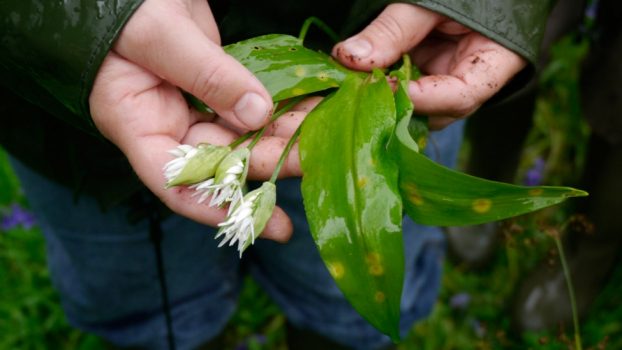
Ellen holds foraged wild garlic.
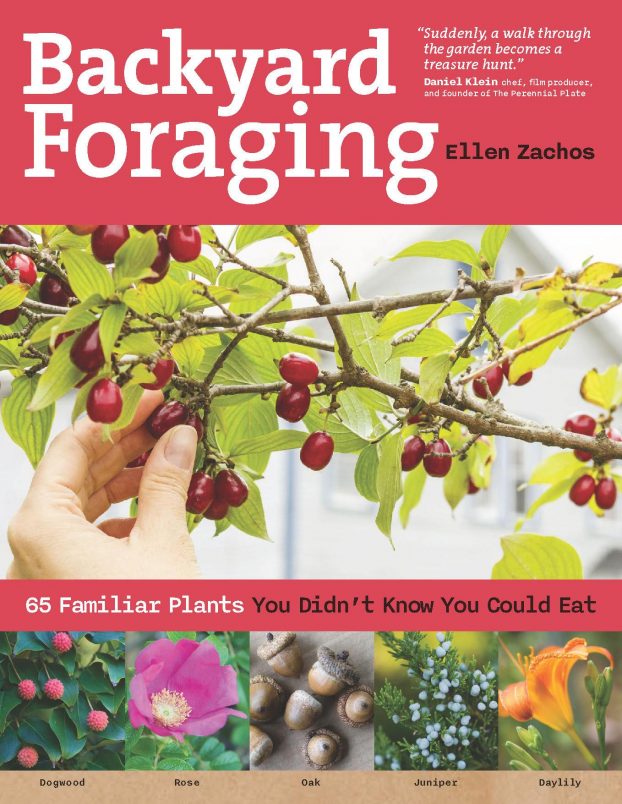 “Gradually, my emphasis shifted from plants that were merely ornamental to plants that fed both body and soul, the eyes and the stomach.
“Gradually, my emphasis shifted from plants that were merely ornamental to plants that fed both body and soul, the eyes and the stomach.
I started out foraging in the garden, because that’s where I could identify the plants and I knew they were safe from potentially dangerous insecticides and herbicides.
Soon I ventured out into the wilds of Central Park, the woods of Pennsylvania, the deserts of New Mexico, the islands of Scotland, and the gorges of Greece. In other words, I’m always looking for delicious, free food!”
As the Foraging Expert at About.com,
(foraging.about.com) Ellen shares seasonal recipes and tips on foraging every month. She also works with Remy Martin USA, teaching foraging mixology workshops across the US, and she is currently working on a book about foraged cocktails, due out in 2017.
I love this line from her blog at backyardforager.com:
I want to get you hooked on wild edibles so maybe next time you’ll be sitting in that car with me when I pull over to harvest burdock flower stems. Because so much of the joy of foraging is sharing it with someone who also appreciates the flavors and the adventure.
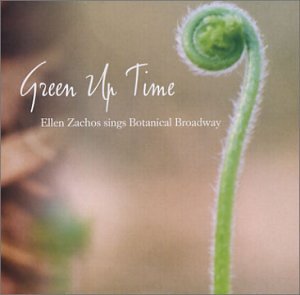
Green Up Time, Ellen Zachos sings Botanical Broadway
The author of six books previous books, including Backyard Foraging: 65 Familiar Plants You Didn’t Know You Could Eat, Orchid Growing for Wimps, and Growing Healthy Houseplants, Ellen also writes a monthly column for the National Gardening Association and she is the Senior Advisor for New England for Garden Compass (the # 1 rated iTunes gardening app).
She loves to teach and is a frequent lecturer at botanic gardens, flower shows, and for garden clubs around the world. Ellen’s show business background taught her how to engage an audience, and she combines this natural skill with years of practical experience and plenty of book learning.
A long-time instructor at the New York Botanical Garden, Ellen recently moved to Santa Fe, NM, which means she splits time between the desert southwest and the lush northeast. It’s quite a contrast, botanically-speaking, and one that keeps her learning new plants as well as new ways to eat them.
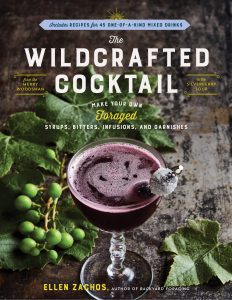
Ellen’s new book will be released in May 2017.
Today’s episode will feature a conversation between two professional colleagues who greatly admire one another — and you’ll hear the warmth of friendship in our voices.
Here is a peek at the cover of Ellen’s new book, at right.
Seattle fans can hear Ellen speak at the upcoming Northwest Flower & Garden Show in February, where she’ll be speaking twice:
Sat, Feb. 25 at 5:30 pm / Hood Room, Backyard Foraging: Gathering from the Garden
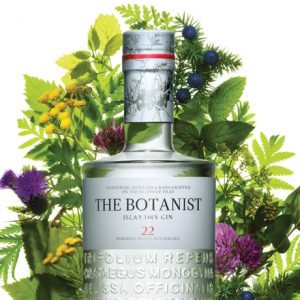
Ellen is a foraging-mixology expert for The Botanist, a luxury gin
Here’s more about Ellen’s foraging-mixology work for The Botanist, from the company’s blog.
She shared this lovely winter cocktail recipe for you to try:
Ingredients: 2 ounces bourbon, 1/2 ounce crabapple syrup, seltzer
Combine the bourbon and syrup in a shaker full of ice and shake for 30 seconds. Strain into a coupe and add seltzer to taste. I add 1/2 ounce but some people like more.
To make the syrup: Put your crabapples (2 cups is a good, minimum amount to start with) in a saucepan and barely cover with water. Bring the contents to a boil, then reduce the heat and let simmer for five minutes, mashing occasionally with a potato masher to release the juices. Pour the fruit through a jelly bag and let it hang until all the juice has been extracted. Resist the temptation to squeeze the jelly bag or the liquid may turn cloudy. Measure the juice and return it to your saucepan. Add an equal amount of sugar and whisk to combine. You want the sugar to be fully dissolved; rub a little liquid between your fingers, it should feel smooth.
Ellen shared these lyrics from “Misalliance,” with her edits to Americanize the English:
Misalliance by Michael Flanders and Donald Swann*
The fragrant Honeysuckle spirals clockwise to the sun
and many other creepers do the same.
But some climb counter-clockwise,
the Bindweed does for one,
Convolvulus to give her proper name.
Rooted on either side of the door,
one of each species grew,
and raced up to the window ledge above.
Each corkscrewed to the lintel in the only way it knew,
where they stopped, touched tendrils, smiled,
and fell in love.
Said the right-handed Honeysuckle to the left-handed Bindweed,
“Oh let us get married if our parents don’t mind, we’d
be loving and inseparable, inextricably entwined, we’d
live happily ever after,”
said the Honeysuckle to the Bindweed.
To the Honeysuckle’s parents it came as a shock.
“The Bindweeds,” they cried, “Are inferior stock.
The uncultivated, of breeding bereft.
We twine to the right and they twine to the left.”
Said the counterclockwise Bindweed to the clockwise Honeysuckle,
“We’d better start saving,
our reserve mustn’t buckle.
Run away on a honeymoon and hope that our luck’ll
Take a turn for the better,”
Said the Bindweed to the Honeysuckle.
A bee who was passing remarked to them then,
“I’ve said it before and I’ll say it again.
Consider your offshoots if offshoots there be.
They’ll never receive any blessing from me.
Poor little sucker, how will it learn
When it is climbing, which way to turn.
Right, left, what a disgrace.
Or it may grow straight up and fall flat on its face.”
Said the right-hand thread Honeysuckle to the left-hand thread Bindweed,
“It seems that against us all fate has combined.
Oh my darling, oh my darling, oh my darling Columbine,
thou art lost and gone forever,
we shall never intertwine.”
Together they found them, the very next day.
They had pulled up their roots and just shriveled away,
deprived of that freedom for which we must fight:
to veer to the left or to veer to the right.
*Americanized by Ellen Zachos
Please enjoy our conversation and HAPPY HOLIDAYS! If you’re looking for the perfect gift for the gardener or flower lover in your life, there’s definitely still time to order Green Up Time as a CD or downloadable Mp3 album.

The Slow Flowers Podcast has been downloaded more than 140,000 times by listeners like you. THANK YOU to each one of you for downloading, listening, commenting and sharing. It means so much.
If you value the content you receive each week, I invite you to show your thanks and support the Slow Flowers Podcast with a donation — the button can be found on our home page in the right column. Your contributions will help make it possible to transcribe future episodes of the Podcast.
Thank you to our lead sponsor for 2016: Certified American Grown Flowers. The Certified American-Grown program and label provide a guarantee for designers and consumers on the source of their flowers. Take pride in your flowers and buy with confidence, ask for Certified American Grown Flowers. To learn more visit americangrownflowers.org.
More sponsor thanks goes to Syndicate Sales, an American manufacturer of vases and accessories for the professional florist. Look for the American Flag Icon to find Syndicate’s USA-made products and join the Syndicate Stars loyalty program at syndicatesales.com.
A big bouquet of thanks goes to Longfield Gardens, providing home gardeners with high quality flower bulbs and perennials. Their online store offers plants for every region and every season, from tulips and daffodils to dahlias, caladiums and amaryllis. Visit them at lfgardens.com.
A fond thank you Arctic Alaska Peonies, a cooperative of 50 family farms in the heart of Alaska providing high quality, American Grown peony flowers during the months of July and August. Visit them today at arcticalaskapeonies.com
And finally, thank you Association of Specialty Cut Flower Growers. Formed in 1988, ASCFG was created to educate, unite, and support commercial cut flower growers. It mission is to help growers produce high-quality floral material, and to foster and promote the local availability of that product. Learn more at ascfg.org
I’m Debra Prinzing, host and producer of the Slow Flowers Podcast. Next week, you’re invited to join me in putting more American grown flowers on the table, one vase at a time. And If you like what you hear, please consider logging onto Itunes and posting a listener review.
The content and opinions expressed here are either mine alone or those of my guests alone, independent of any podcast sponsor or other person, company or organization.
The Slow Flowers Podcast is engineered and edited by Andrew and Hannah Brenlan. Learn more about their work at shellandtree.com.
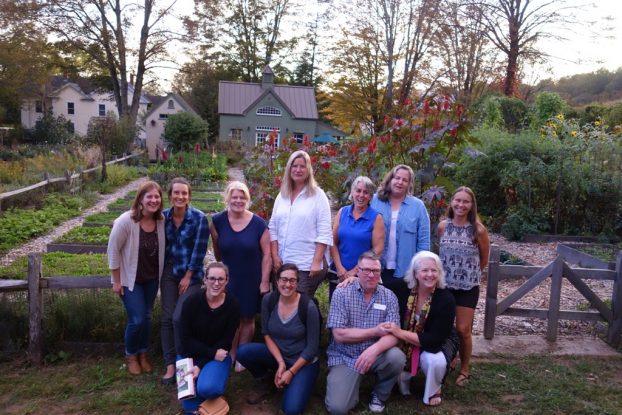
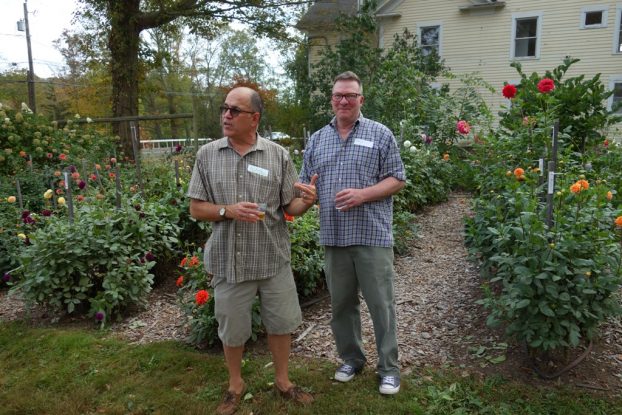
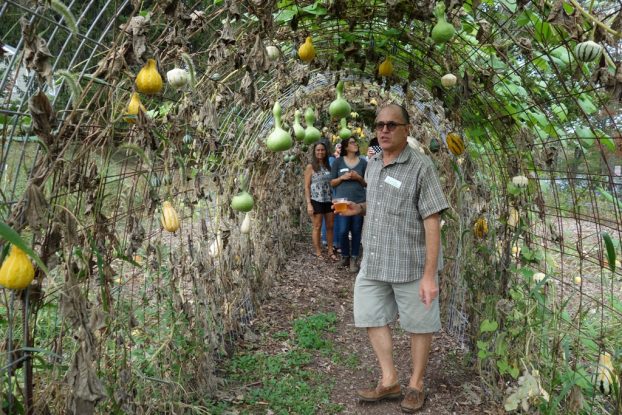
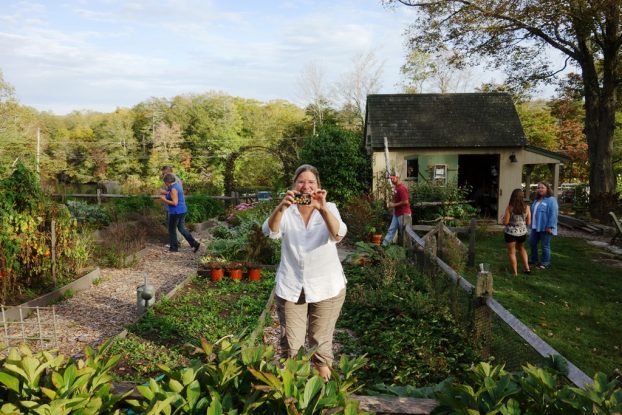









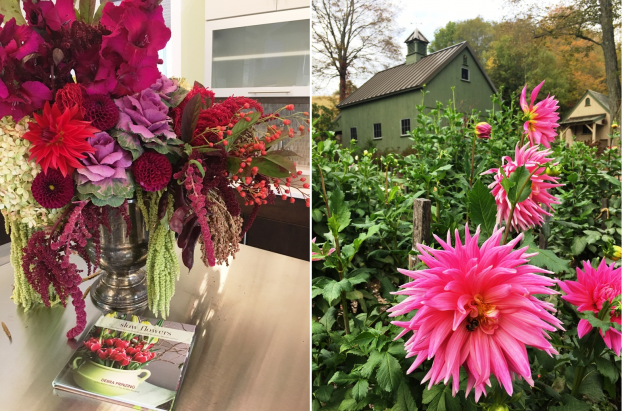
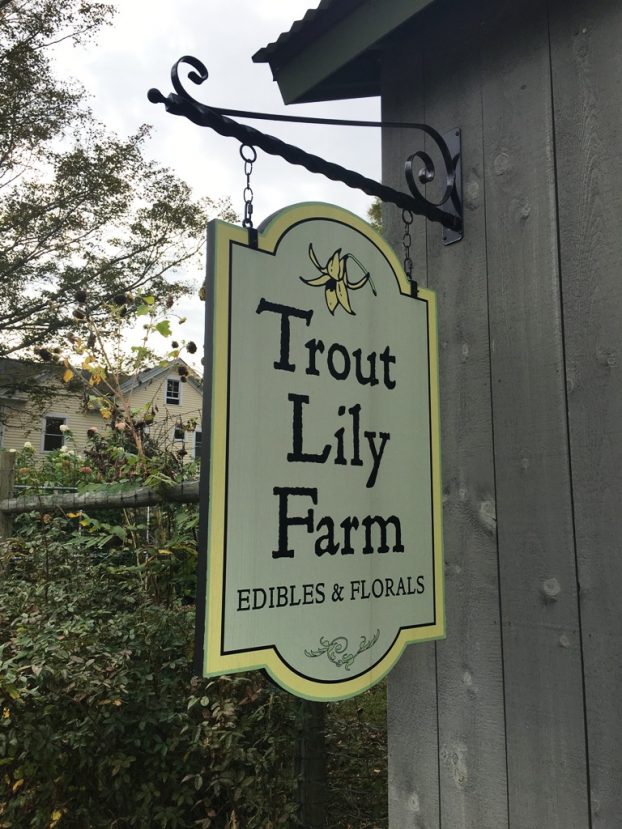
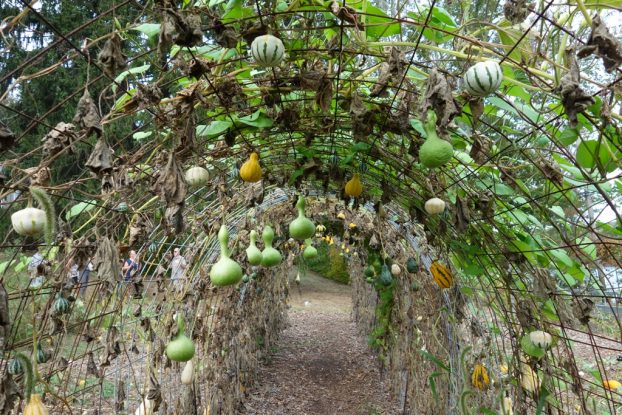
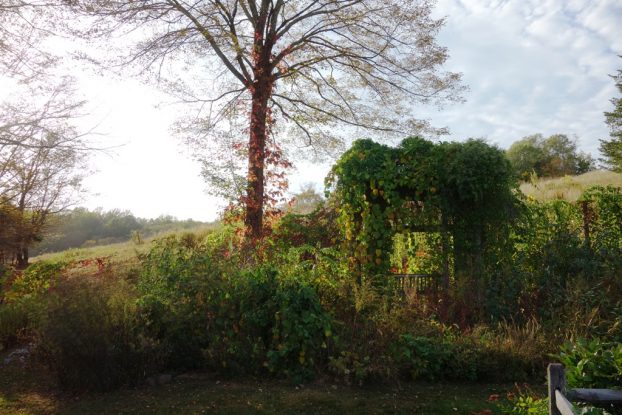

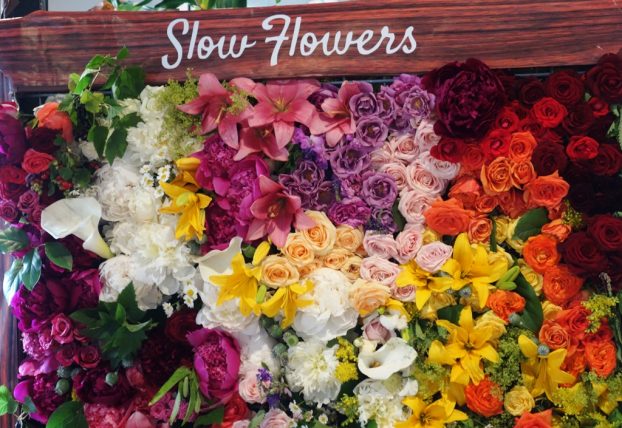
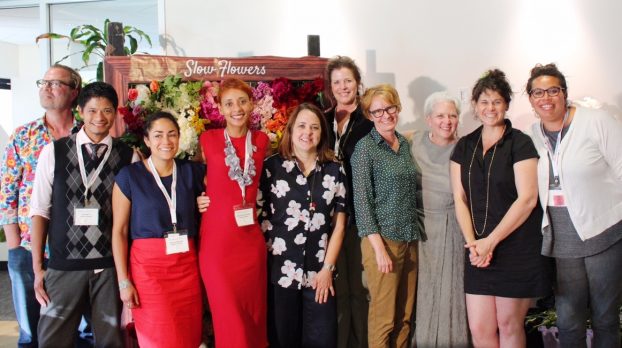
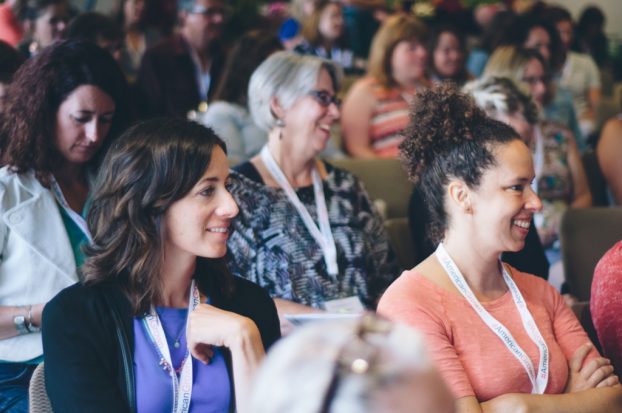
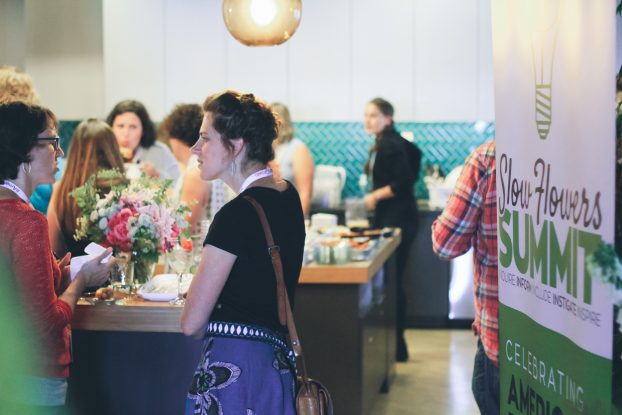
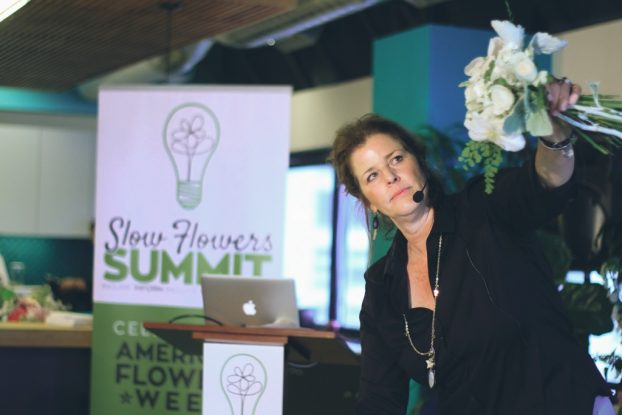
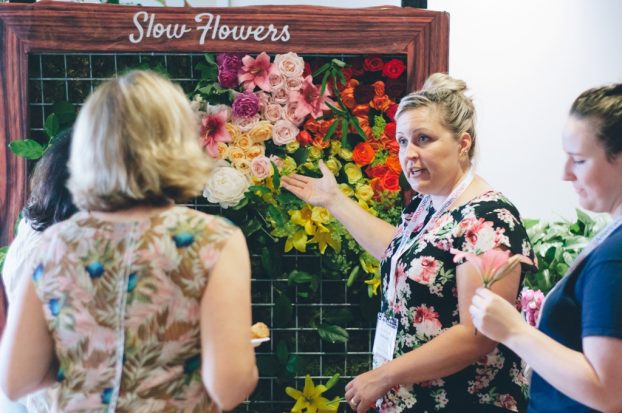
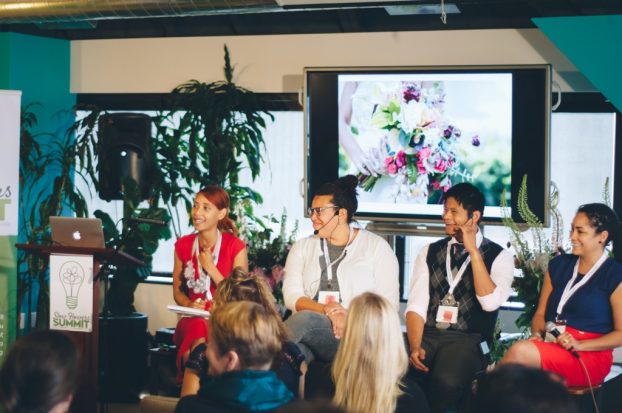
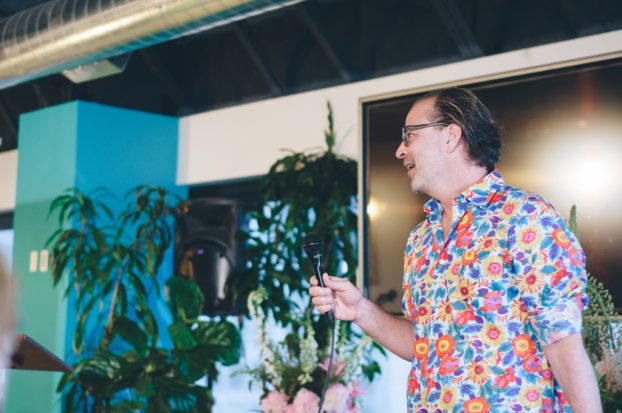
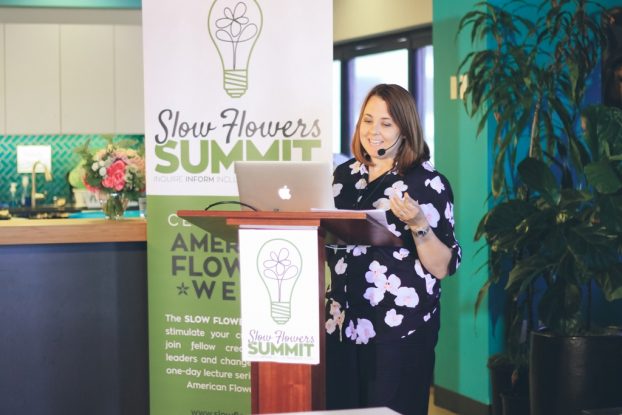
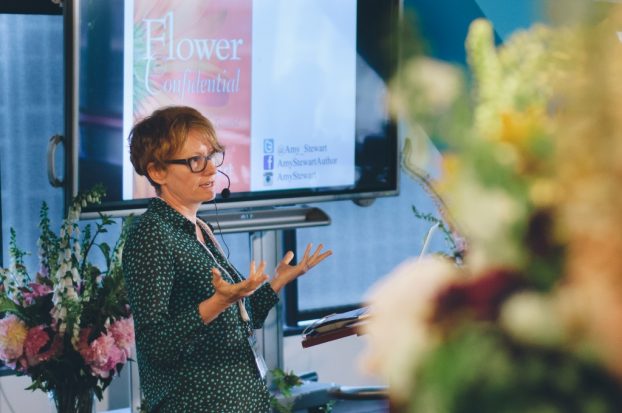
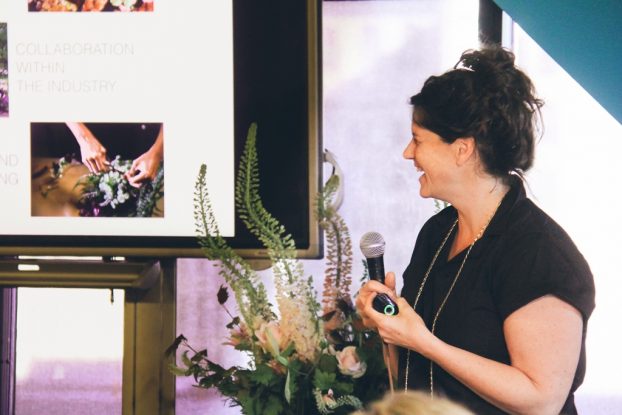
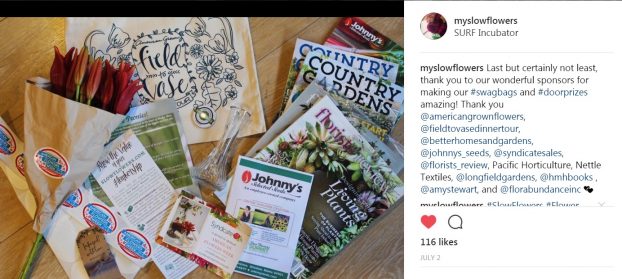
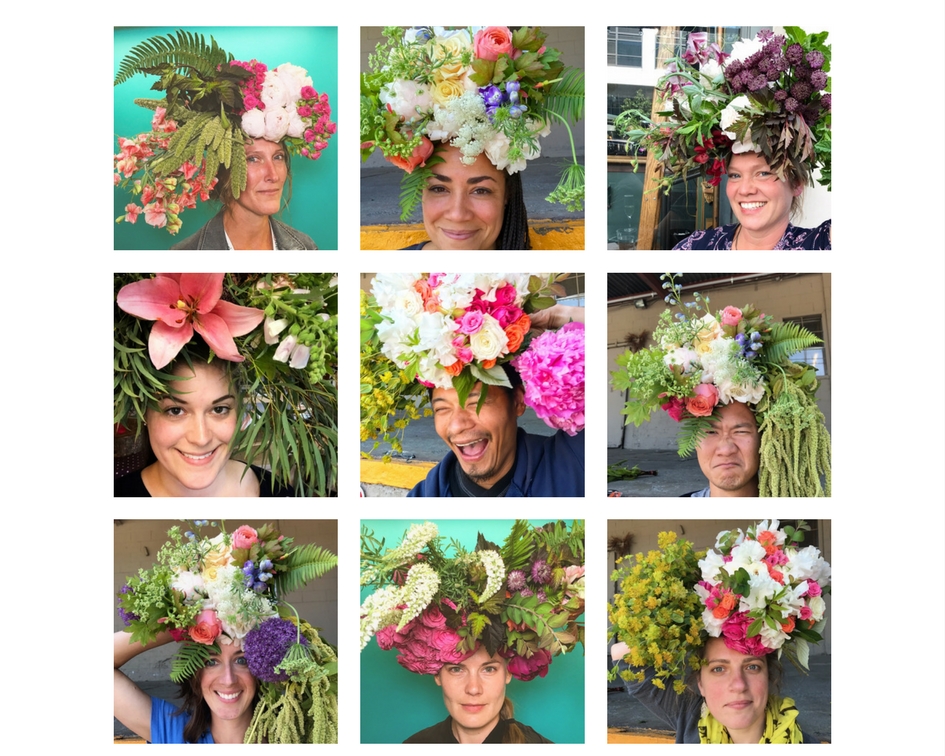
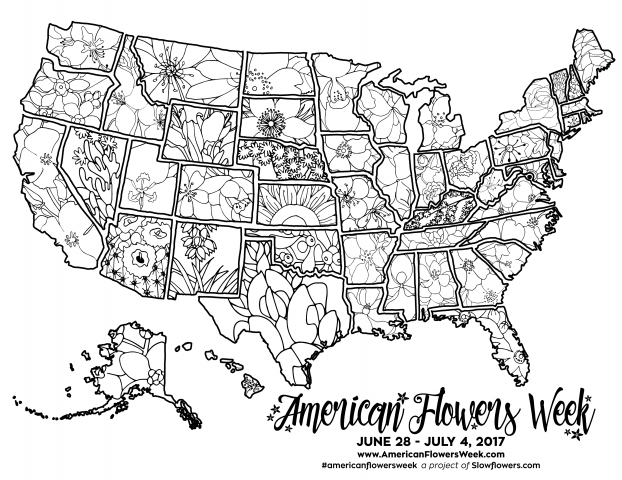

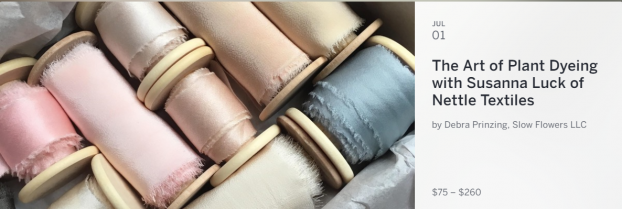


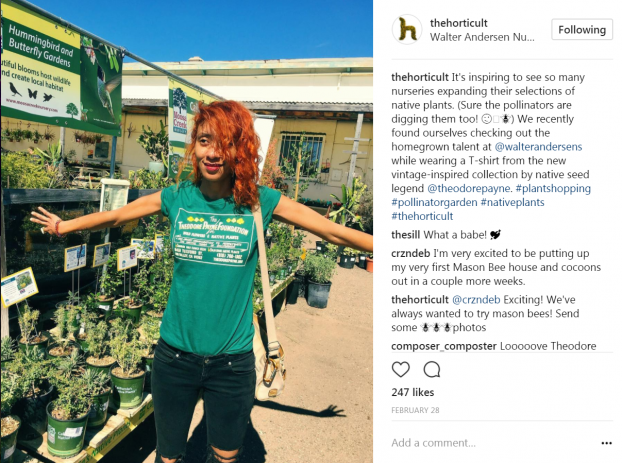
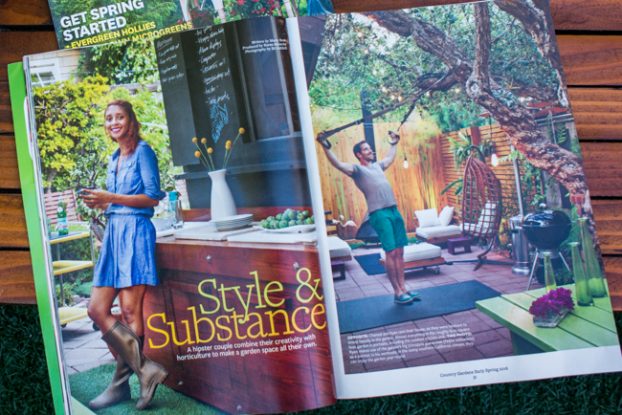

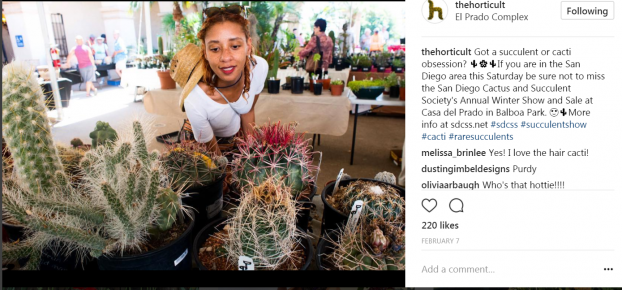
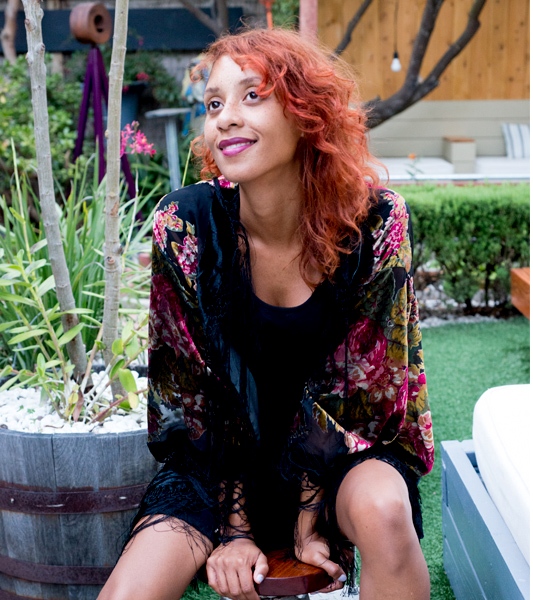

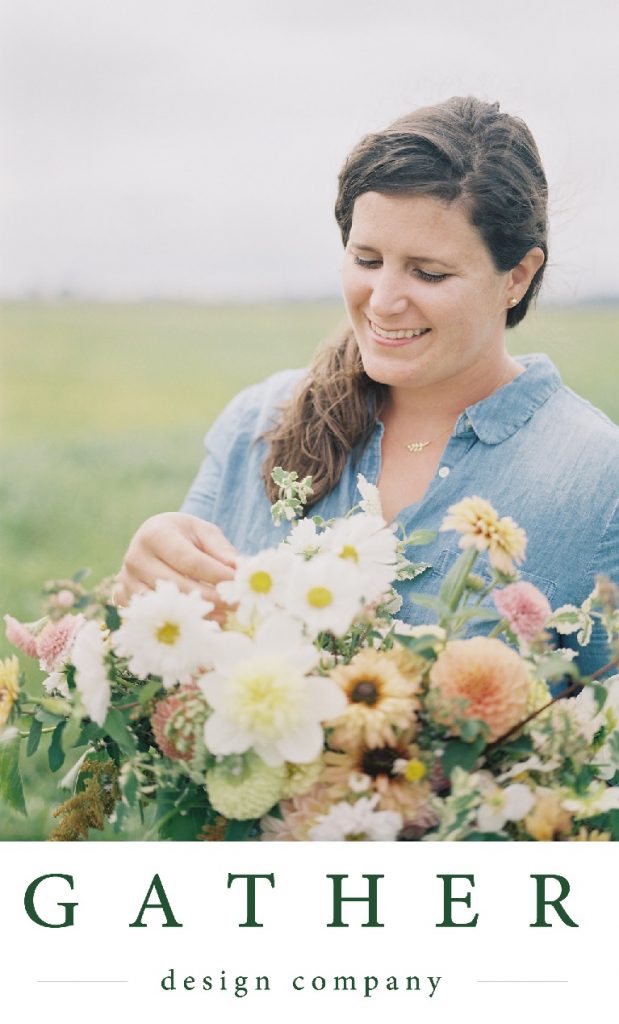


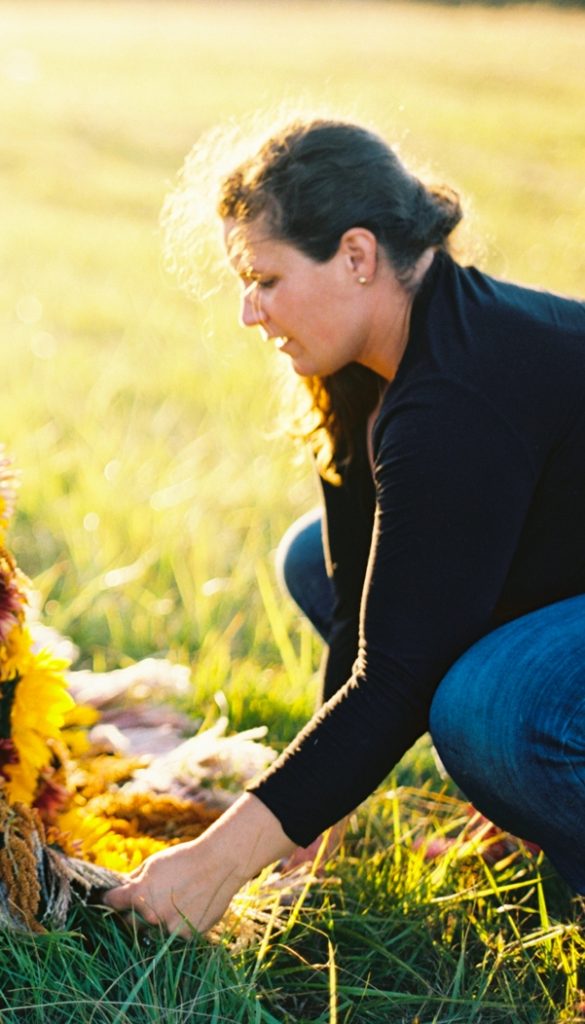
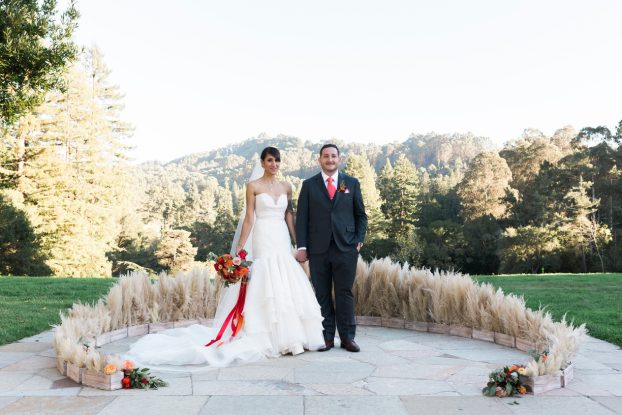
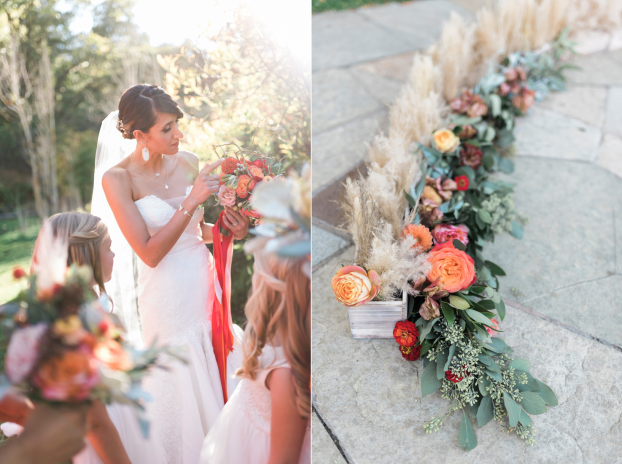
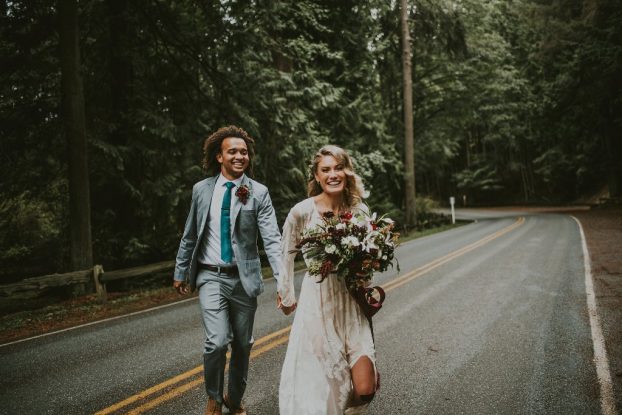
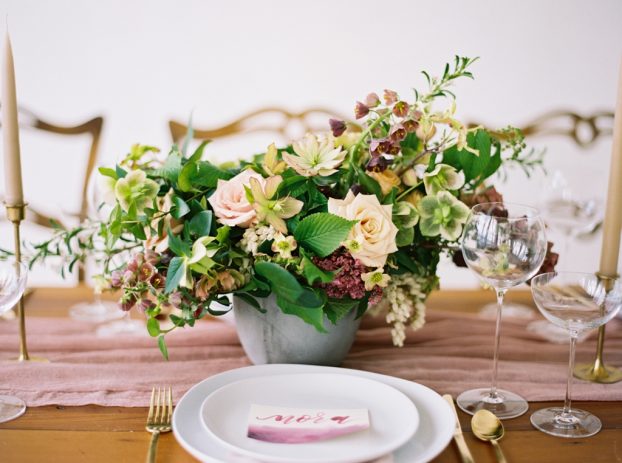
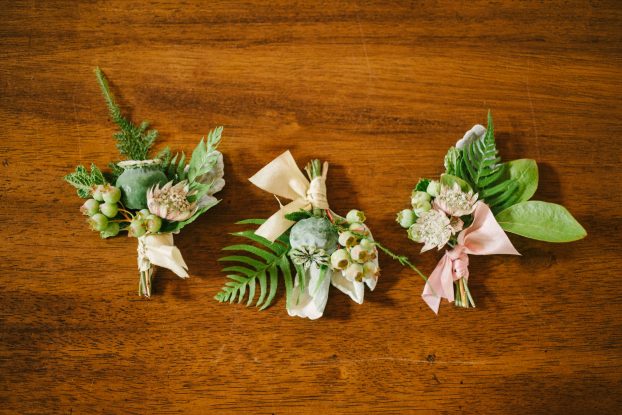
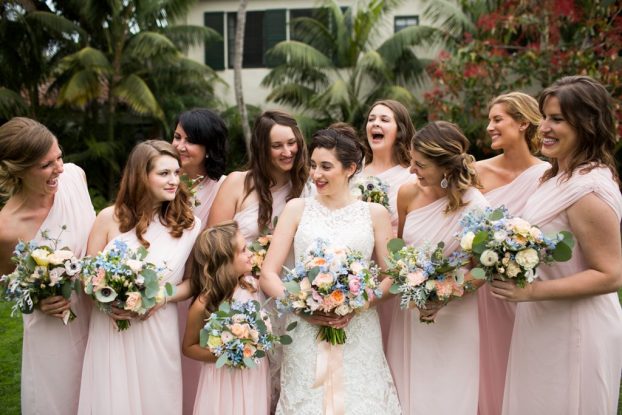
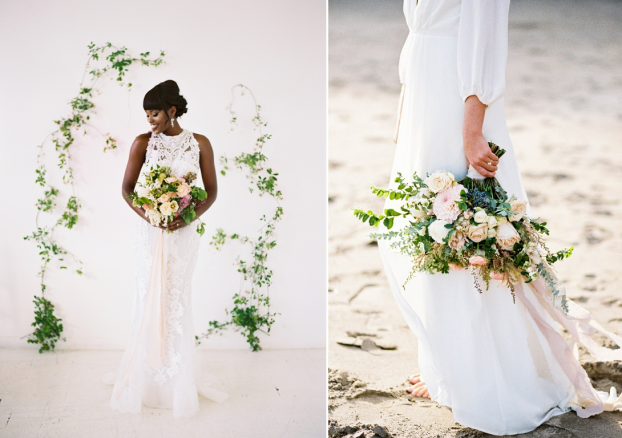

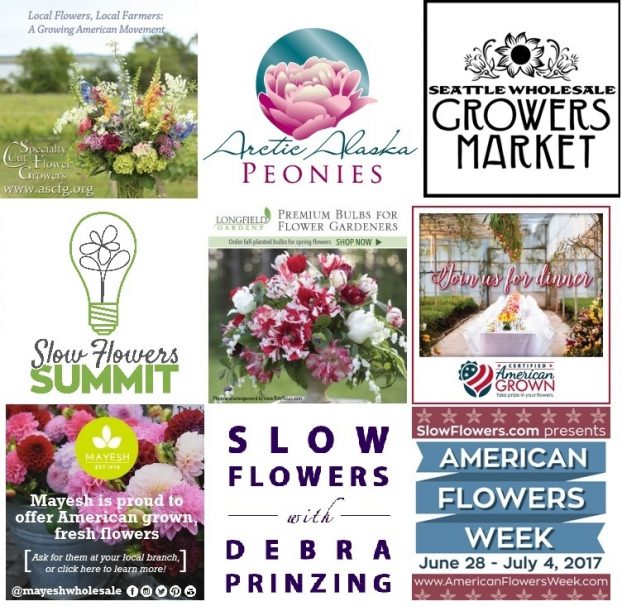










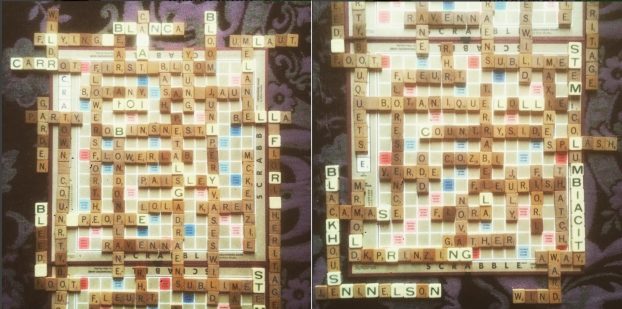
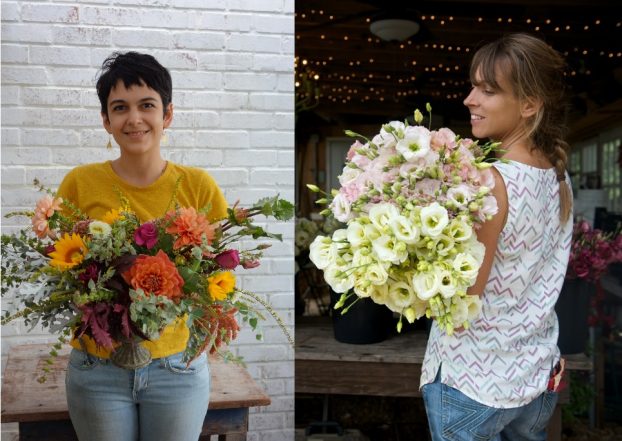
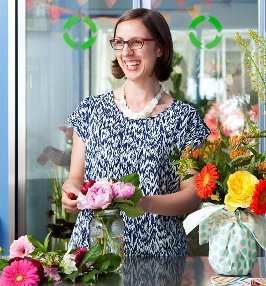
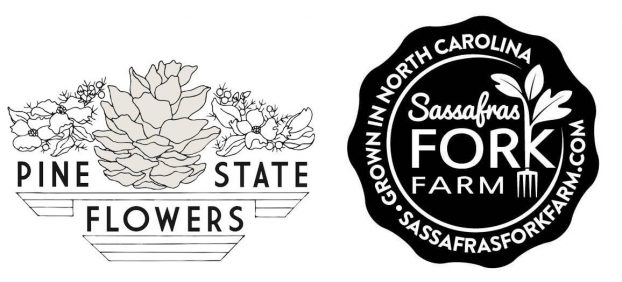
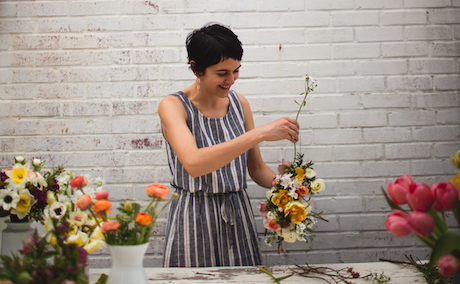
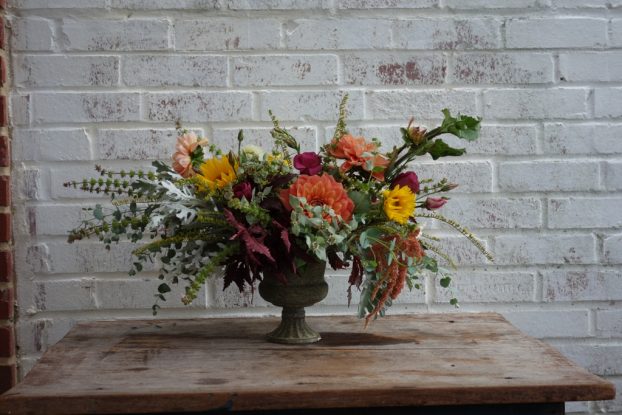
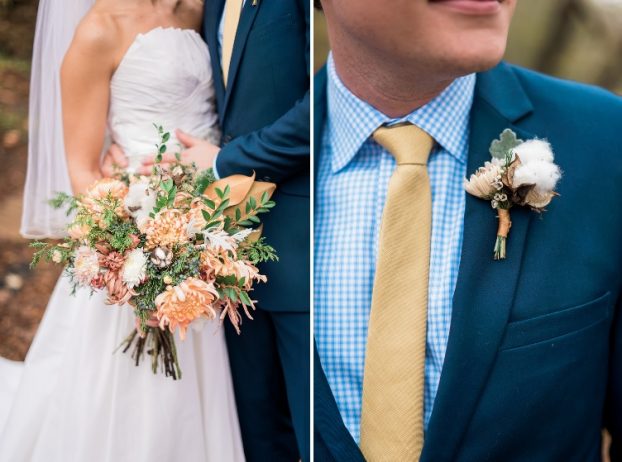
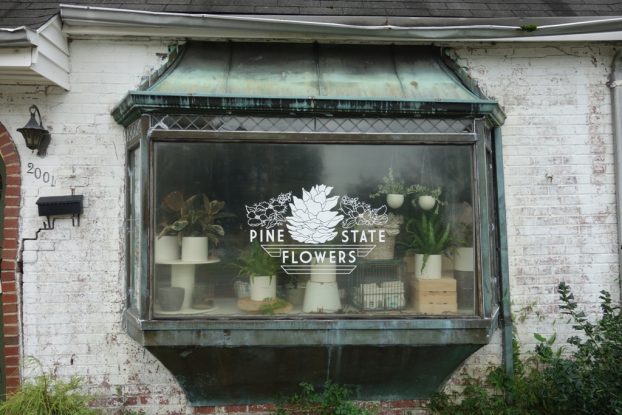
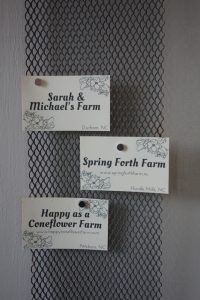
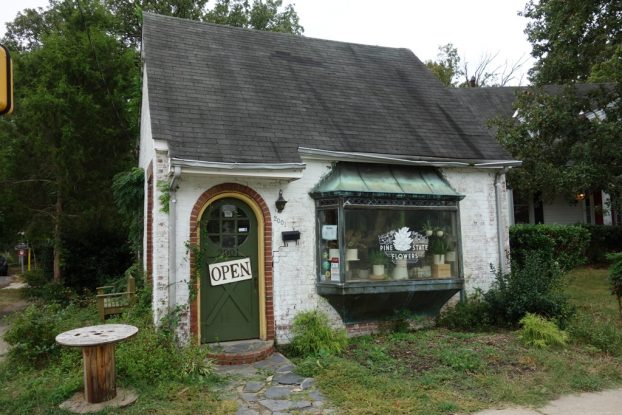
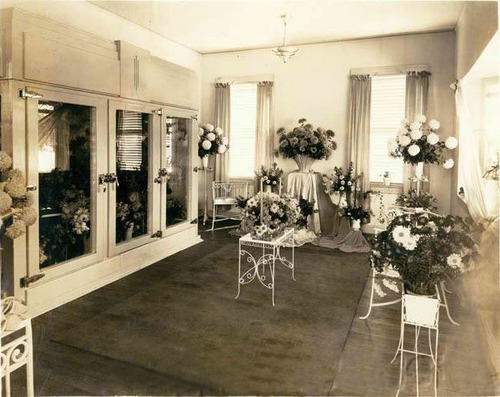
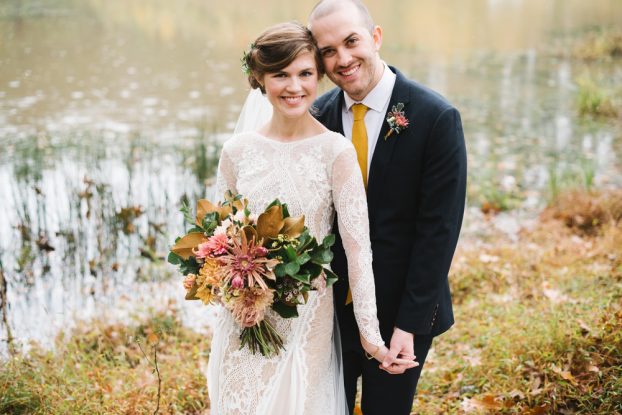
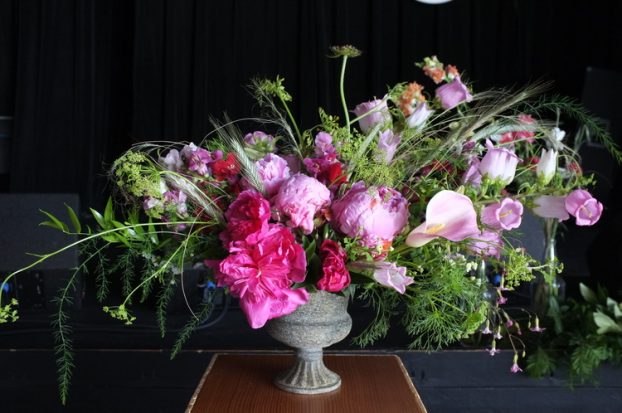
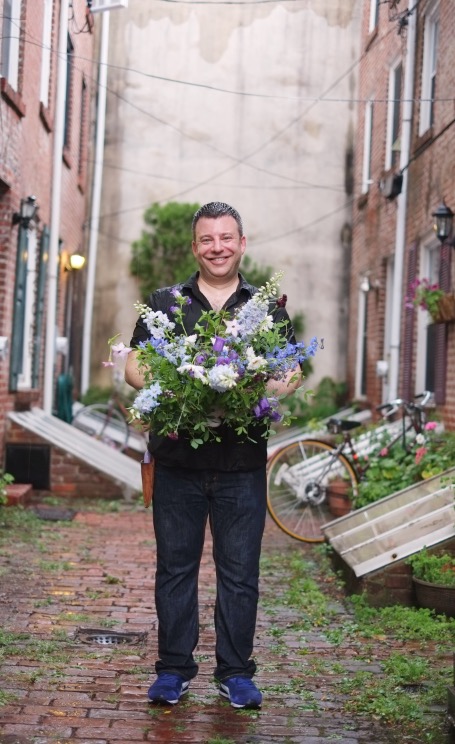
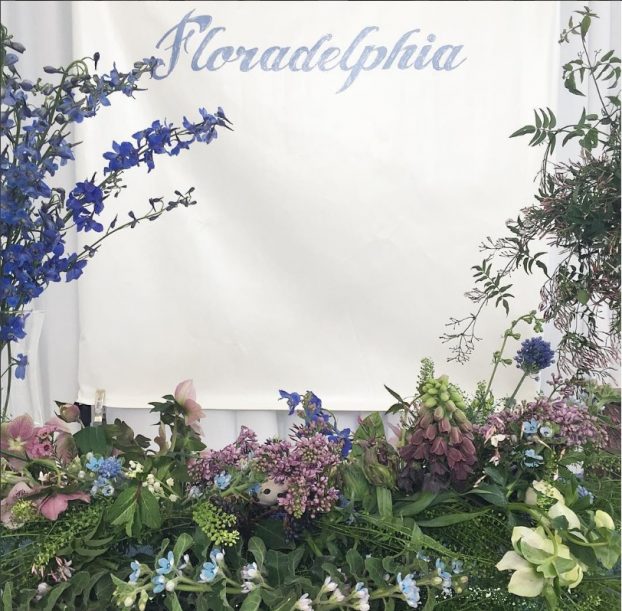
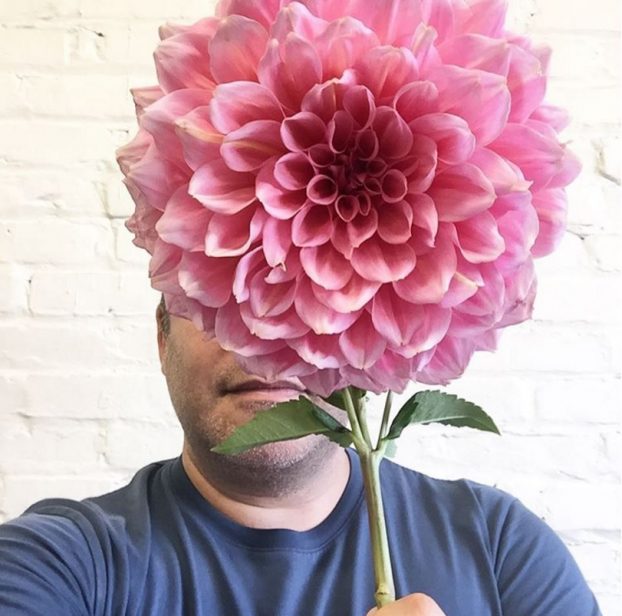
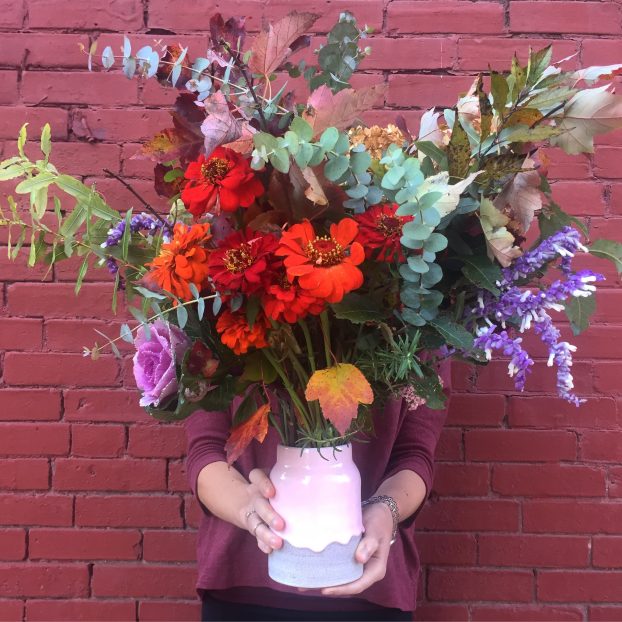
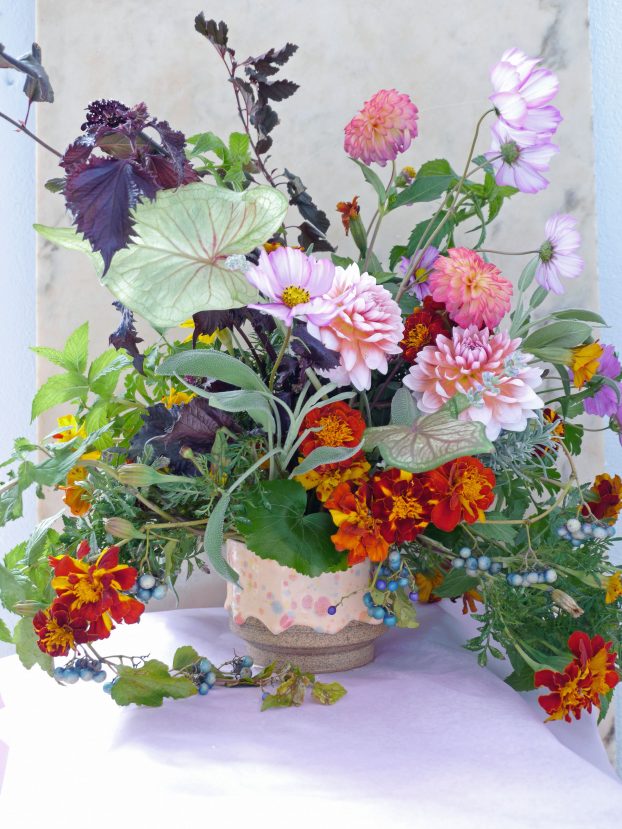
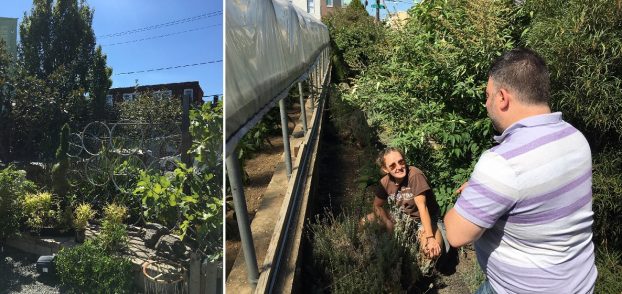
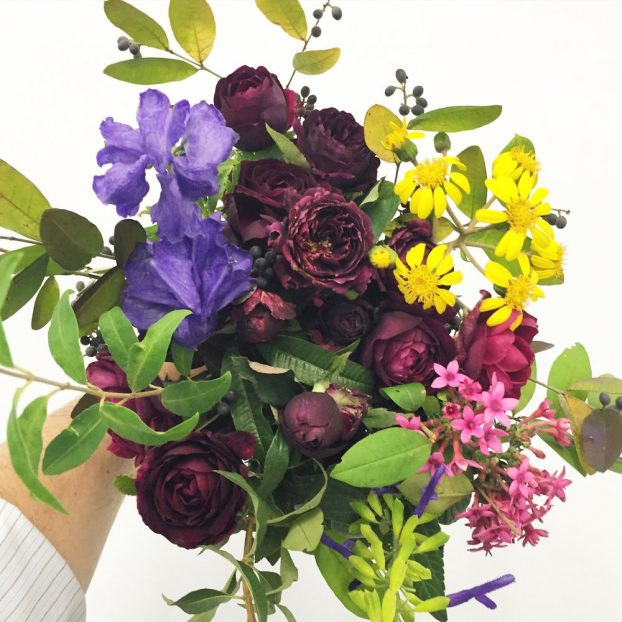
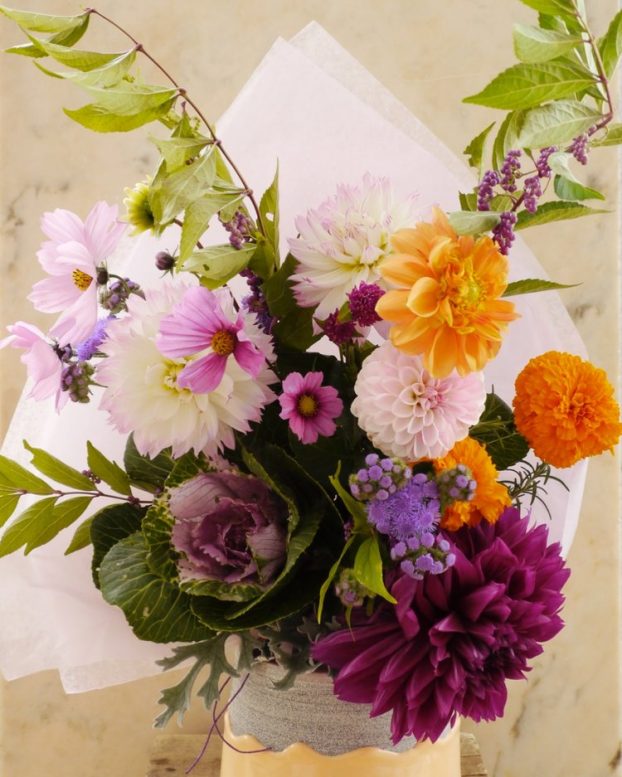
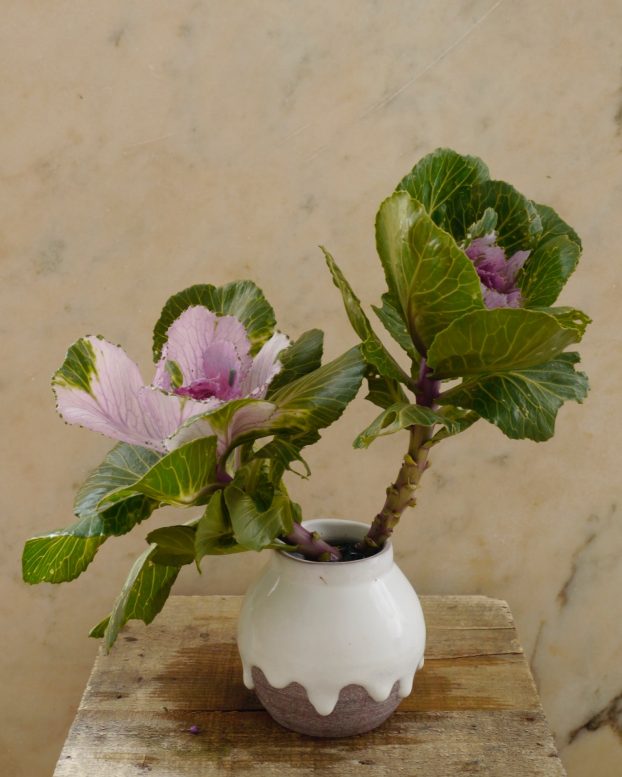
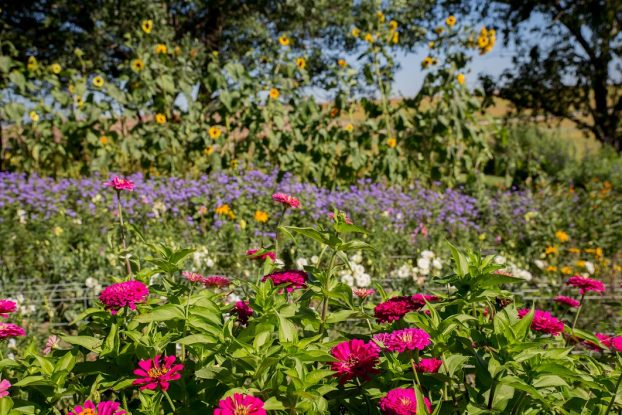
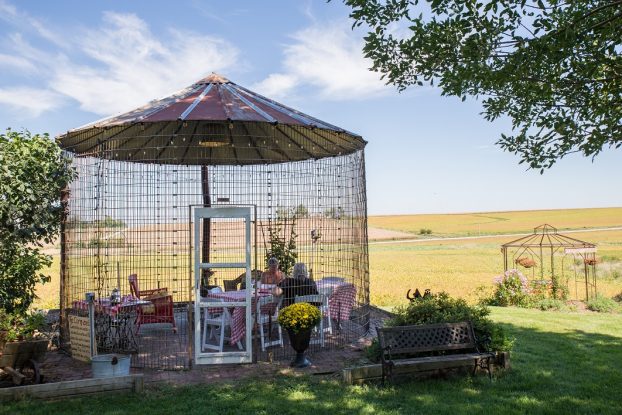
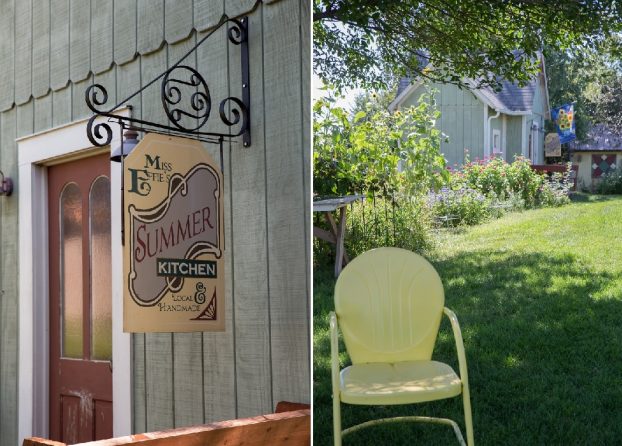
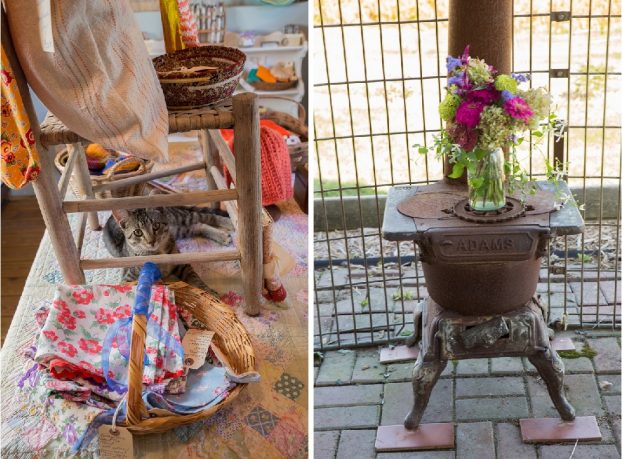
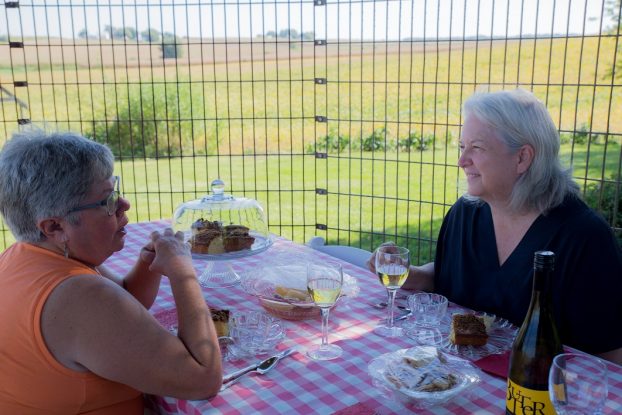
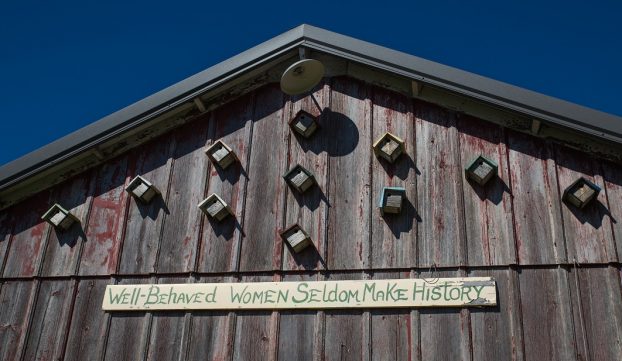
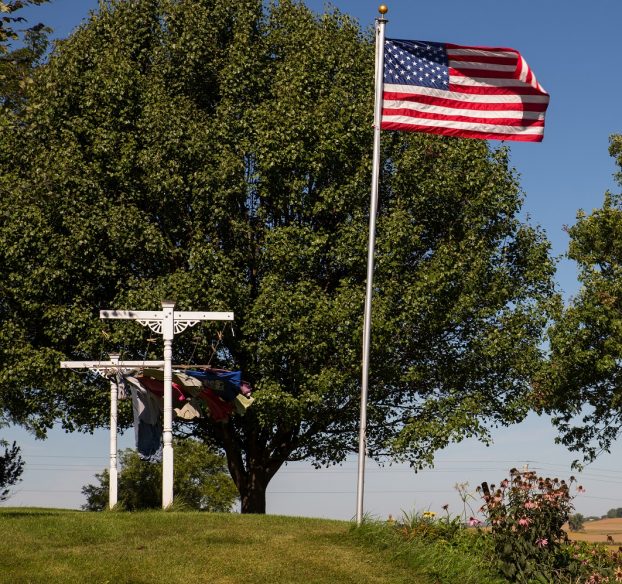
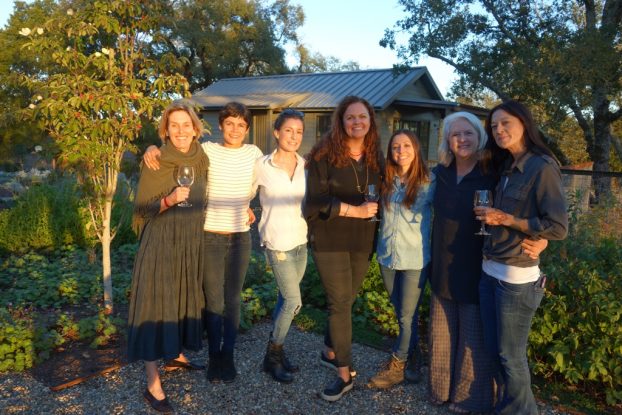
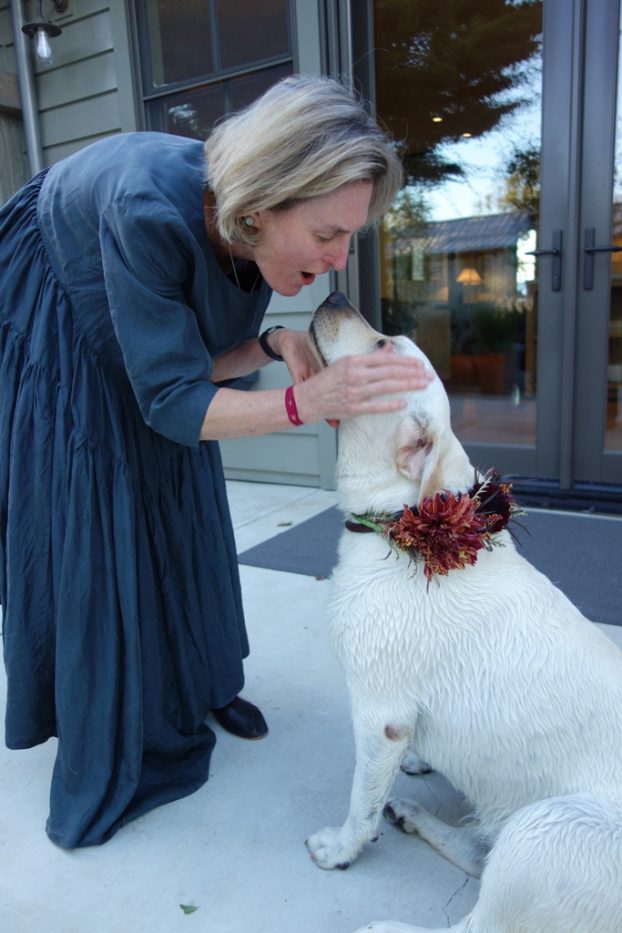
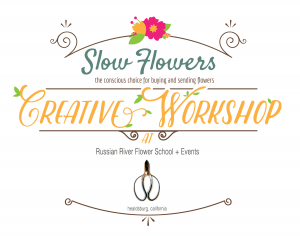 Earlier this month I had the distinct pleasure of teaching with Dundee Butcher of Russian River Flower School in Healdsburg, California.
Earlier this month I had the distinct pleasure of teaching with Dundee Butcher of Russian River Flower School in Healdsburg, California.